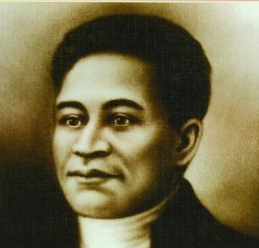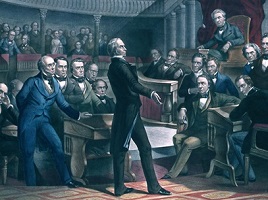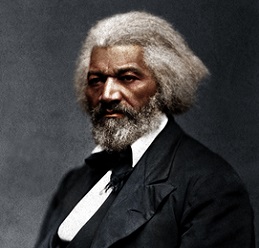Influence on History and American Literature
Phillis Wheatley is a pioneer in African American literature and is credited with helping create its foundation. She provided inspiration to other African American slaves such a Jupiter Hammon who in 1778 wrote “An Address to Miss Phillis Wheatley”. Her influence as an African American writer goes beyond literature and starts by proving that, if given the opportunity, African slaves had the same intellectual capacity and creativity as Europeans. She provided inspiration to future generations of African Americans who fought for the abolition of slavery and civil rights. Slavery still had to wait until 1863 when President Lincoln abolished it.
Colonial Society
To understand Wheatley’s work one has to recognize the society in which she lived, her condition as a slave and the constant discrimination she experienced because of her skin color. Many critics assert that she did not embrace her race, but would she have found a publisher if she had written about slavery?. Indeed, Boston had a progressive society but discrimination and the believe that Africans were inferior still persisted. In order to publish her book “Poems on Various Subjects, Religious and Moral” she had to go to court to prove that she was the rightful author of her works. This situation proves the mentality of the time. Phillis walked on a fine line as a black woman in a white society who was given the luxury of education and many other benefits slaves were prohibited to access. Phillis was thankful to her master and aware of her privileged condition. Under these circumstances Phillis embarked to write poetry for a white audience.
Religion
Phillis’ work was strongly influenced by Christianity and by the promise of life after death, which made her poetry stand out. Twenty of her poems are elegies written to comfort relatives with eternal life in heaven. The following is an excerpt from “To the Hon. T. H. Esq; on the Death of His Daughter.”
WHILE deep you mourn beneath the cypress–shade
The hand of Death, and your dear daughter laid
In dust, whose absence gives your tears to flow,
And racks your bosom with incessant woe,
Let Recollection take a tender part,
Assuage the raging tortures of your heart,
Still the wild tempest of tumultuous grief. (continue reading)
Religion played a key role in Wheatley’s success as a writer; she was able to build a bridge between herself, an African slave, and her white audience. Her work shows life and society in a pious colonial America. At the young age of 14 she published her first poems “An Address to the Atheist” and “An Address to the Deist” in which she urges atheist and deists to believe in god who created the universe.
Where now shall I begin this Spacious field
To tell what curses unbelief both yield
Thou that dost daily feel his hand and rod—
And dare deny the essence of a God
If there’s no heaven whither will thou go? (continue reading)
One of her most prominent critics was Thomas Jefferson who thought that Wheatley was a product of religion, “Religion indeed has produced a Phyllis Wheatley; but it could not produce a poet. The compositions published under her name are below the dignity of criticism.”
Slavery and Freedom
Some of her critics argue that she was too white in the sense that she did not repudiate her status as a slave. For instance, in the poem “To the University of Cambridge, New England” she expresses her gratitude on being brought to safety to America from Africa calling Africa “a land of errors”.
WHILE an intrinsic ardor prompts to write,
The muses promise to assist my pen;
‘Twas not long since I left my native shore
The land of errors, and Egyptian gloom:
Father of mercy, ’twas thy gracious hand
Brought me in safety from those dark abodes. (continue reading)
But she also wrote about her cruel enslavement and her parents’ sorrow from taking their child from them. She shows an ambiguity in her feelings towards slavery. In “To the Right Hon. William, Earl of Dartmouth, His Majesty’s Principal Secretary of State for North-America” she wrote:
By feeling hearts alone best understood,
I, young in life, by seeming cruel fate
Was snatch’d from Afric’s fancy’d happy seat:
What pangs excruciating must molest,
What sorrows labour in my parent’s breast?
Steel’d was that soul and by no misery mov’d
That from a father seiz’d his babe belov’d:
Such, such my case. And can I then but pray
Others may never feel tyrannic sway? (continue reading)
However she is thankful for her conversion to Christianity and the opportunity to go to heaven regardless of her color. In “On Being Brought from Africa to America” she describes her journey as:
‘Twas mercy brought me from my Pagan land,
Taught my benighted soul to understand
That there’s a God, that there’s a Saviour too:
Once I redemption neither sought nor knew.
Some view our sable race with scornful eye,
“Their colour is a diabolic die.”
Remember, Christians, Negro’s, black as Cain,
May be refin’d, and join th’ angelic train. (continue reading)
Politics and Current Events
She wrote about political issues of the time such as the Stamp Act. In “To the King’s Most Excellent Majesty” she praises King George III for repealing the Stamp Act. She was a vocal supporter of American independence writing a poem to George Washington “To His Excellency, General Washington” in which she praises him for his heroism.
Today there are fifty five surviving poems written by Phillis Wheatley. It is believed that she wrote twice as many but a house fire destroyed them. Phillis Wheatley is notorious for having been the first woman and African American to publish a book. What makes her exceptional is that she accomplished it while being a slave.


